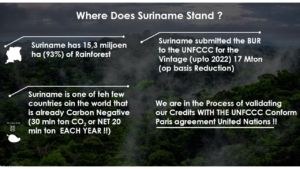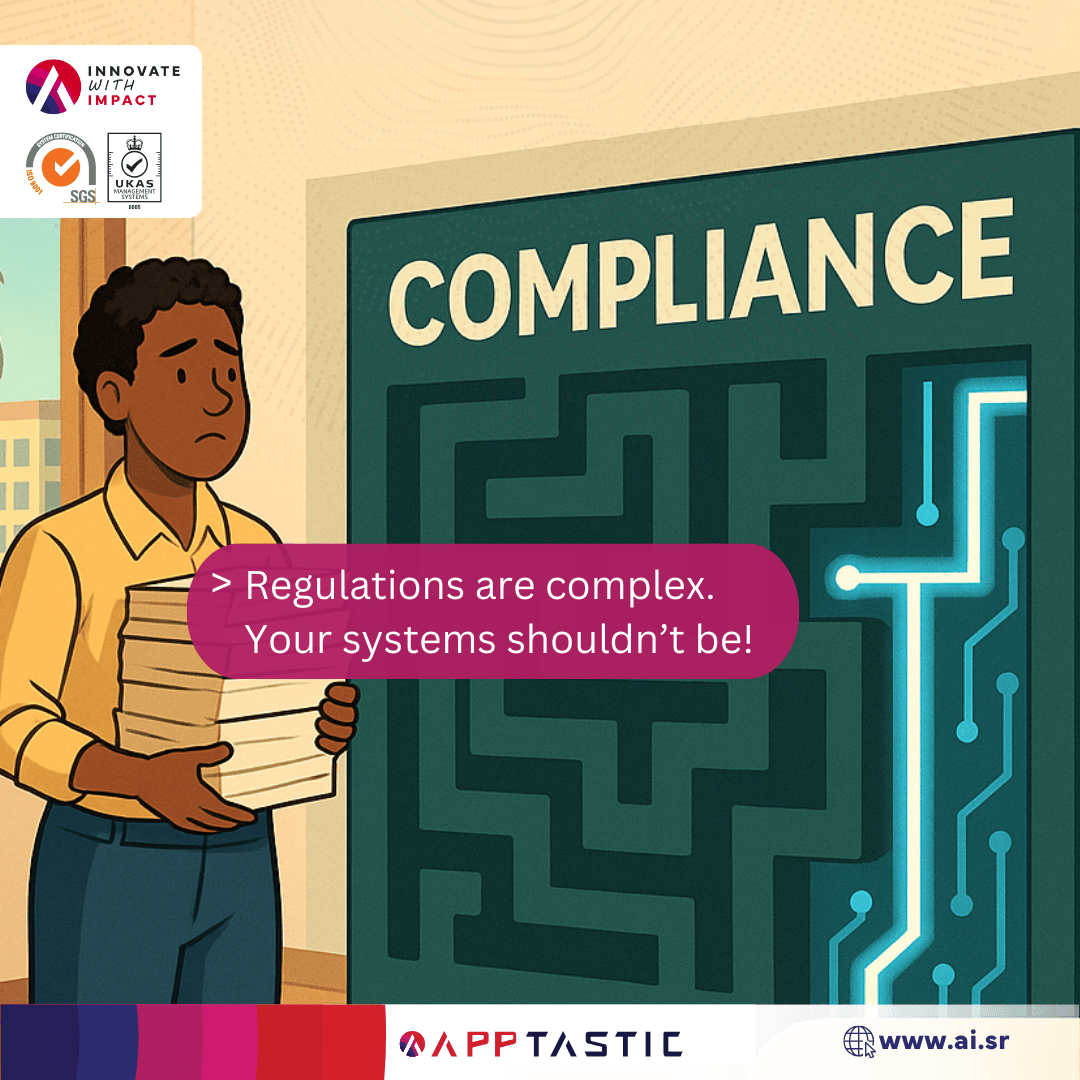Introduction
In a presentation by Rudolf Elias, at a round table hosted by the VSB at the SEOGS 2023, the importance of Suriname’s rainforest as a valuable natural resource and its significance in the global fight against climate change were highlighted. Elias emphasized the urgent need to recognize the value of rainforests and the impact of climate change, which he compared to a tsunami, in order to protect Suriname’s environment. This article delves into the key points from Rudolf Elias’ presentation, focusing on the importance of rainforests, Suriname’s position as the greenest country on Earth, and the potential economic benefits of carbon credits.
Rainforests: Beyond Tree Hugging
Rudolf Elias acknowledged that the perception of rainforests as merely a subject of environmental activism or “tree hugging” is limiting. He emphasized that rainforests represent one of our most valuable natural resources. However, there is a tendency to overlook their significance and instead treat them as exploitable commodities.
The Alarming Reality of Climate Change
Elias referenced Al Gore’s influential speech in 2006, which brought attention to the imminent threat of climate change. He cautioned that while the world experienced the COVID-19 pandemic as a disruptive event, climate change poses a much larger and more destructive impact—comparable to a tsunami. Elias stressed that Suriname, despite being the greenest country on Earth, is not immune to the effects of climate change. The Caribbean nations, including Suriname and Guyana, are projected to be severely impacted, with the cities of Paramaribo and Georgetown at risk of flooding if proactive measures are not taken.

PPT Rudolf Elias, June 2023
A Shifting Global Perspective
Elias highlighted the silver lining in the global response to climate change. Historically, people have been driven to change their behavior either for pleasure or pain. While Suriname alone being impacted by climate change might not garner global attention, the fact that the Western world is experiencing the pain caused by climate change has spurred them into action. This has resulted in a global push towards achieving net-zero emissions, known as the “Net Zero race.”
The Paris Agreement and Rainforest Nations
Elias explained that in order to achieve the goals of the Paris Agreement, countries must focus not only on reducing emissions but also on addressing deforestation. The international community recognizes the vital role rainforest nations play in mitigating climate change. At the 2021 COP26 in Glasgow, a significant development took place for rainforest nations. The United Nations introduced terms and conditions, allowing countries to sell carbon credits on a sovereign basis. Suriname, as the greenest country on Earth, is already carbon negative and can trade its carbon credits, positioning it favorably in the emerging carbon market.
Suriname’s Unique Position and Achievements
Elias emphasized Suriname’s exceptional position as one of the few countries in the world with a negative carbon footprint. Suriname boasts 15.3 million hectares of forest cover, representing 93% of its land area. This vast rainforest provides immense value, not only in terms of carbon sequestration but also as a biodiversity hotspot and a significant oxygen supplier to the world.
Advancements and Future Steps
Elias discussed the progress made by Suriname in the area of carbon credits. The country has submitted its first biannual report, developed in collaboration with Ernst & Young and the Council of Rainforest Nations. This report estimates that Suriname already has 17 million tons of carbon credits that are likely to be accredited by the United Nations’ FCCC by August or September of this year.
The next crucial step is to validate Suriname’s potential 20 million tons of annual carbon removals. The economic value of Suriname’s carbon credits is significant.
